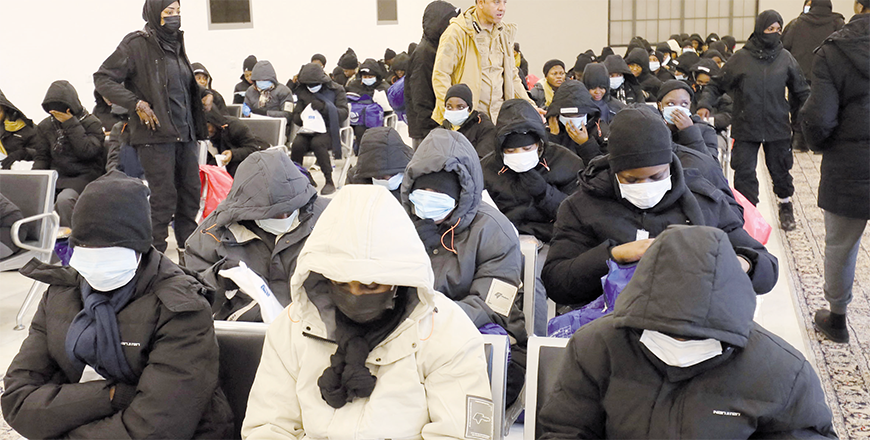TRIPOLI — Libyan authorities on Tuesday began sending more than 320 irregular migrants to their home country Nigeria, an immigration official told AFP.
War-torn Libya has become as a key departure point on North Africa’s Mediterranean coast for migrants, mainly from other parts of Africa, risking dangerous sea voyages in hopes of reaching Europe.
Libya’s rival administrations last year agreed on a Tripoli-based anti-immigration body tasked with coordinating deportations of foreigners who are in the country illegally.
“We carried out on Tuesday the expulsion of 163 irregular migrants of Nigerian nationality from the Mitiga airport, including 107 women, 51 men and five children,” said the migration agency’s head of security, Mohamad Baredaa.
In a move coordinated with the International Organisation for Migration (IOM), Baredaa added that “160 Nigerians will be sent back to their country from Benina airport in Benghazi” later on Tuesday.
An AFP correspondent saw the first group at Tripoli’s Mitiga airport early Tuesday, where they were given a laissez-passer before boarding shuttles to the plane.
According to the IOM, there are more than 700,000 migrants in Libya.
More than a decade of violence and instability since the 2011 overthrow and killing of dictator Muammar Qadhafi in a NATO-backed uprising helped turn the country into a fertile ground for human traffickers.
Smugglers and traffickers have long been accused of abuses.
In 2015, the UN-affiliated organisation established a “voluntary humanitarian return” scheme, arranging and financing travel for migrants and asylum seekers in Libya wishing to leave for their respective origin countries.
Last year, 9,370 people left under the programme, down from 11,200 in 2022, according to IOM figures.
